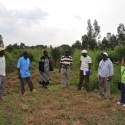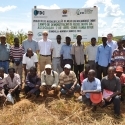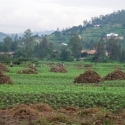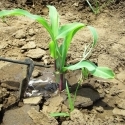12 Jan 2011
Diagnosis of Soil Health Problems in Smallholder Cropping Systems
IPNI is joining efforts with the Africa Soil Information Services Project led by the Tropical soil biology and Fertility Institute of CIAT (TSBF-CIAT) to diagnose soil health problems and develop site specific nutrient management recommendation for cropping systems in Africa
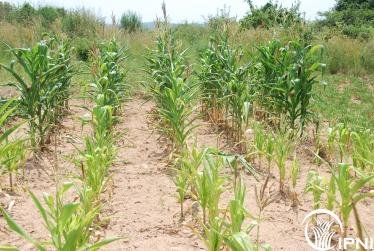 Coordinated Maize Project - Eastern Zimbabwe
Coordinated Maize Project - Eastern Zimbabwe
Improving targeting of nutrient management practices is crucial to effectively address crop production constraints in highly variable agricultural landscapes in sub-Saharan Africa (SSA). IPNI is joining efforts with the Africa Soil Information Services Project led by the Tropical soil biology and Fertility Institute of CIAT (TSBF-CIAT) to diagnose soil health problems and develop site specific nutrient management recommendation for cropping systems in SSA. The AfSIS project is implementing diagnostic nutrient omission trials and developing decision support tools that will provide standard approaches and tools, norms and principles for improving crop productivity and nutrient use efficiencies in SSA. Diagnostic trials have been installed in major farming systems in five countries (Mali, Malawi, Kenya, Tanzania and Nigeria) and will provide consistent, large-scale mechanisms for testing the efficacy of fertilizer and soil fertility ameliorants use.
The specific objectives and activities for the diagnostic trial are:
I. To develop a standard approach to diagnose soil health related problems, including procedures, tools and protocols, for use by NARS.
II. To conduct diagnosis of factors limiting crop growth, including nutrient deficiencies, chemical imbalance and physical constraints and their relative importance.
III. To predict crop growth, yield and nutrient uptake and their response to fertilizer (macro and micronutrients) from soil and foliar spectral and other AfSIS covariates.

